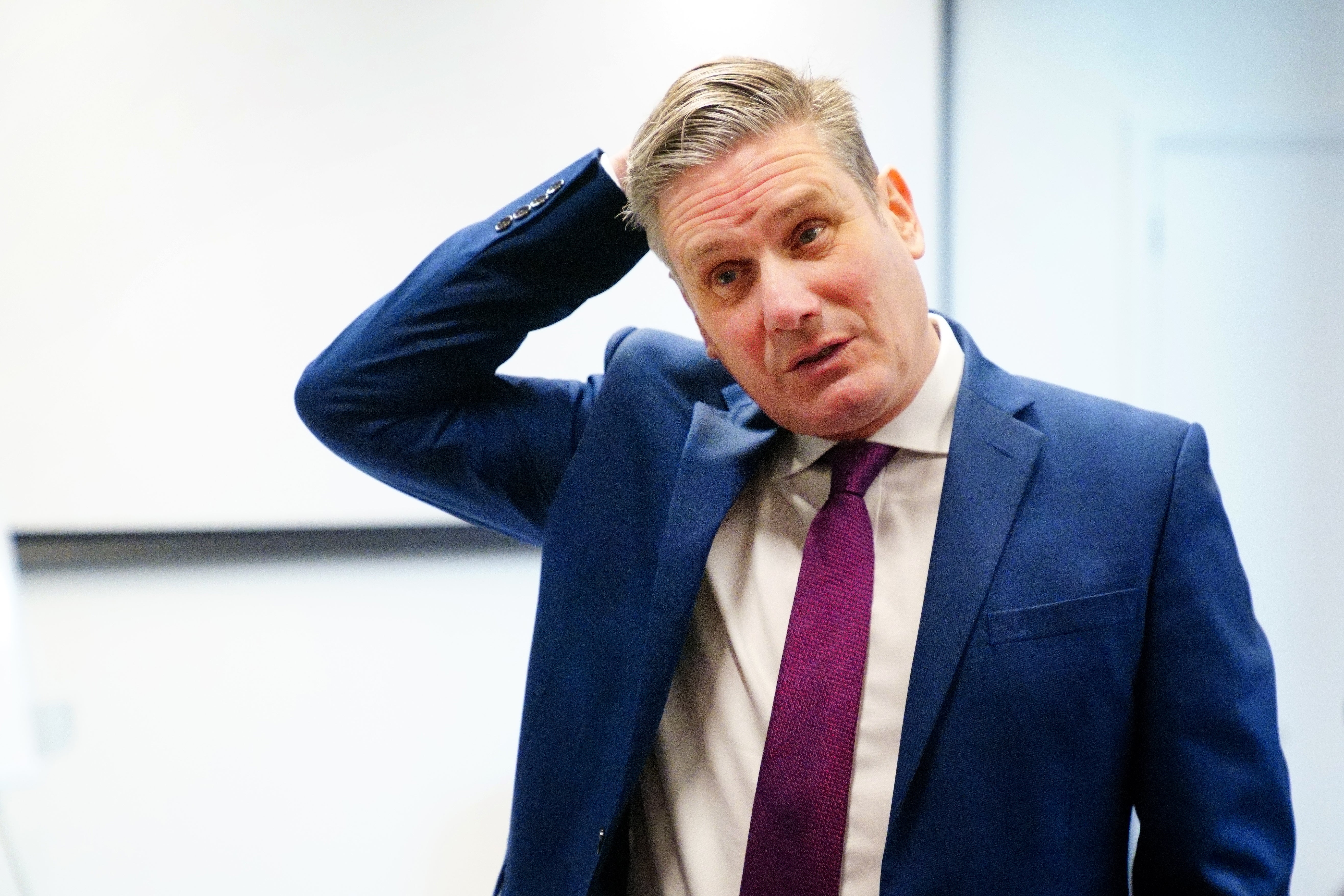Keir Starmer’s stance on Nato is inconsistent with his past
I agreed with everything in the Labour leader’s ‘I love Nato’ thumping of the tub – but it felt oddly unconvincing, writes John Rentoul


Less than two years ago Keir Starmer was a candidate for the Labour leadership on a party unity ticket that included “No more illegal wars” and a “Prevention of Military Intervention Act”. He promised in effect to give the Corbynites the policies they wanted, presented by a more prime ministerial leader.
Yesterday he wrote an article that struck a different tone. “The likes of the Stop the War coalition are not benign voices for peace,” he declared. Even as a sectarian Blairite myself, I was shocked. I agreed with everything in his “I love Nato” thumping of the tub, including the hero-worship of Clement Attlee, Ernest Bevin and Denis Healey. But as a neutral observer, accustomed now to looking at the Labour Party from the outside as a sociological phenomenon rather than a cause to identify with, it felt oddly unconvincing.
He was asked about that dissonance in an interview at Nato HQ in Brussels with Laura Kuenssberg of the BBC, who asked: “You say now that Labour is the party of Nato. Have you always believed that?” He said “yes” and repeated the line about Bevin, Labour’s post-war foreign secretary, who signed the treaty: “This is Labour Party history and tradition.”
So it is, and history is important, as Nathan Yeowell argues in a new book, Rethinking Labour’s Past, published yesterday by Progressive Britain, the successor to Progress, the New Labour faction.
The book is an important part of reclaiming Labour history from the myth-making of the Jeremy Corbyn years. Part of the Corbyn project was the claim that it was taking the party back from the Blairite interlopers to its true and original roots, the tradition of real socialism that had been usurped in 1994. This depended on a warped reading of the Attlee government in particular. It created the welfare state, but that was nothing to do with the anti-capitalist statist daydreams of modern kitsch communists. Attlee’s achievements in healthcare, schools and social security were a wartime consensus supported by the Conservatives with disagreements at the margins, mainly about which companies should be nationalised.
And, as Starmer rightly and brutally reminded us, it was Attlee who founded Nato, built the British nuclear deterrent, and sent British troops to fight communism in Korea. All of which had to be paid for by austerity at home.
But there is something missing in Starmer’s account of how he came to sit in a shadow cabinet led by Corbyn, who “had a different view”, as Starmer put it. Corbyn was “wrong” about Nato, he told Kuenssberg: “I spoke out at the time and said he was wrong about that.” He did, and Corbyn was constrained in his anti-Nato, anti-nuclear-weapons instincts by Labour Party policy, which he never seriously tried to overturn. Even so, it seems unlikely that Starmer was “always” pro-Nato. In his twenties, when he was on the editorial collective of Socialist Alternatives and a member of the International Revolutionary Marxist Tendency, I don’t think he supported the Atlantic alliance.
Instead of giving Kuenssberg a history lesson, Starmer might have been more persuasive if he had told a bit more of his personal history, of how his views had developed and been shaped by world events. That might have been more effective in taking parts of his party with him, by asking them to join him on a journey he once made, but about which he has never been explicit.
To keep up to speed with all the latest opinions and comment sign up to our free weekly Voices newsletter by clicking here
For all that Labour politics is seen as a permanent civil war between fixed factions of varying names – Bennites, Corbynites and Momentum versus modernisers, Blairites and “Labour to Win” – many party members are on the persuadable middle ground. They are not generally in favour of military intervention, but equally they do not agree with Diane Abbott, who yesterday blamed the “destabilisation” of Ukraine and the region on “the continued eastward expansion of Nato”. Some of us are a bit hazy about our history of Nato enlargement, but we can look it up and observe that the last expansion in a Russia-ward direction was in 2004, when the Baltic states and Bulgaria and Romania joined, as they were entitled to do as a matter of national self-determination.
Maybe Starmer is engaged in a programme of trying to drive out the most committed of Corbyn supporters from the Labour Party. But the most committed are likely to stay, come what may, as Corbyn himself did for all those 32 years as an MP when he disagreed fundamentally with Labour policy. And it is all very well adopting positions on Nato and nuclear weapons in bold primary colours in order to get through to the wider electorate that Labour can be trusted on national security, but it would be more effective if Starmer could explain how he came to these views.
I’m a Blairite, but the thing about Tony Blair is that, most of the time, he took the party with him. If Starmer can persuade his party, he would be more likely to persuade the public.



Join our commenting forum
Join thought-provoking conversations, follow other Independent readers and see their replies
Comments